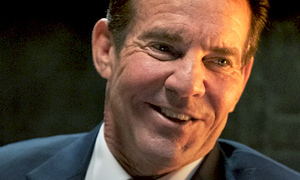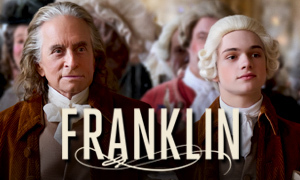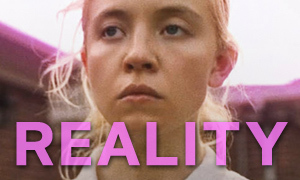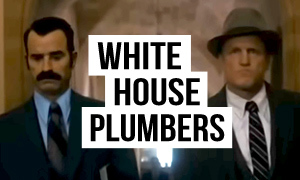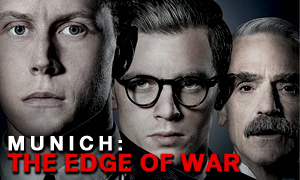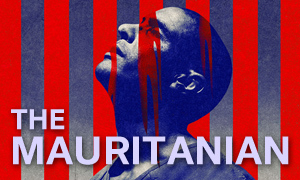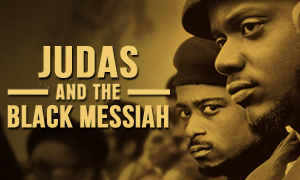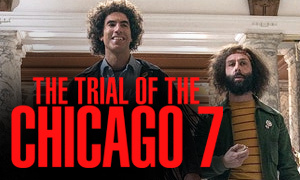The Mauritanian: History vs. Hollywood
Tahar Rahim
Born: July 4, 1981
Birthplace:
Belfort, Territoire de Belfort, France
Mohamedou Ould Slahi
Born: December 21, 1970
Birthplace: Rosso, Mauritania
Jodie Foster
Born: November 19, 1962
Birthplace:
Los Angeles, California, USA
Nancy Hollander
Born: March 10, 1944
Benedict Cumberbatch
Born: July 19, 1976
Birthplace:
Hammersmith, London, England, UK
Lt. Col. Stuart Couch
Born: April 20, 1965
Birthplace: Durham, North Carolina, USA
Shailene Woodley
Born: November 15, 1991
Birthplace:
Simi Valley, California, USA
Theresa 'Teri' Duncan
Why was Mohamedou Ould Slahi sent to the Guantanamo Bay detention camp?
The Mauritanian true story confirms that Slahi was arrested two months after 9/11 in his homeland of Mauritania and taken to three different countries before being sent to the Guantanamo Bay detention camp (Gitmo) as a result of his past connections to al-Qaeda. Back in December of 1990, Slahi had traveled from Germany (where he had been attending college on a scholarship he won) to Afghanistan to help the mujahideen in their attempt to overthrow the communist regime of Mohammad Najibullah. Despite being viewed as the enemy today, the U.S. had supported the anti-Soviet mujahideen rebels in their insurrection against Najibullah. The rebels were even portrayed as the good guys in the plot of Rambo 3.
In order to prepare himself to fight alongside the Afghanis to help them achieve independence, Slahi participated in a military training camp run by al-Qaeda, and he swore allegiance to the organization in March 1991. The U.S. had backed al-Qaeda in their fight against Najibullah. At the end of his training, he went back to Germany and did not participate in the civil war at the time. He eventually returned to Afghanistan for two months in 1992, joining a mortar battery six weeks before the Najibullah regime fell. He claims that it was then that he cut all ties with al-Qaeda.
However, the U.S. government suspected that Slahi was a sleeper agent who had been supporting and recruiting for al-Qaeda in the years since 1992. The government believed that he was one of the key recruiters for the 9/11 attacks. Their suspicion wasn't that far-fetched since a common tactic of terrorist groups is to have members appear to leave the group but then remain as sleeper agents in various locations around the world. Intelligence agencies, including the CIA, had also gathered a growing amount of circumstantial, yet somewhat incriminating, evidence against Slahi.
Did Mohamedou Slahi ever see his mother again?
No. In The Mauritanian movie, Mohamedou Ould Slahi is apprehended at a wedding celebration in Mauritania two months after 9/11. The police want to question him about his ties to al-Qaeda. He tells his mother he'll be back shortly and to save him some food. He doesn't return and it is the last time she ever sees him. This deviates a little from the true story. In real life, he was at his mother's house and he got a call from the police to come and be interviewed. The police picked him up and it was the last time she ever saw him. Both his mother and his brother died while he was in Guantanamo.
What intelligence evidence did the U.S. government have on Mohamedou Ould Slahi?
In addition to training with al-Qaeda in the early 1990s, there were a number of other red flags that led to Mohamedou Ould Slahi's detention at Guantanamo Bay. They included the following:
- Slahi's cousin and former brother-in-law Mahfouz Ould al-Walid (aka Abu Hafs al-Mauritania) was a spiritual adviser to Osama bin Laden, the founder of al-Qaeda. al-Walid also sat on the shura council of al-Qaeda and was in charge of the sharia council. However, he wrote a letter to bin Laden opposing the 9/11 attacks and he parted ways with al-Qaeda after 9/11. In the late 1990s, al-Walid had twice asked his cousin, Mohamedou Ould Slahi, to assist him in getting roughly $4,000 to his family in Mauritania to help his sick father. Prior to the second money transfer, which took place in December 1998, Slahi was overheard by U.S. intelligence talking to al-Walid on a satellite phone that belonged to bin Laden (or a close associate). The U.S. government then concluded that the money transfers had been done on behalf of al-Qaeda in support of terrorism abroad.
- The 9/11 Commission Report concluded that, in 1999, Slahi had advised three members of a radical Islamist cell in Germany, known as the Hamburg Cell. Based on the interrogations of Ramzi bin al-Shibh, the report found that Slahi had told the men to go to Afghanistan for training before unleashing jihad in Chechnya. However, in 2010, the federal district court that examined Slahi's case concluded that Slahi had simply "provided lodging for three men for one night at his home in Germany [in November 1999], that one of them was Ramzi bin al-Shibh, and that there was discussion of jihad and Afghanistan." Ramzi bin al-Shibh was later accused of being a "key facilitator for the September 11 attacks."
- After his visa to attend college on scholarship in Germany had expired and immigration authorities wouldn't extend it, Slahi moved to Montreal, Quebec, Canada in November 1999. He attended a large mosque there, and because he was a hafiz (a person who has completely memorized the Quaran), he was invited by the Iman to lead prayers during Ramadan. A man by the name of Ahmed Ressam attended the same mosque, and in December 1999, Ressam was apprehended with explosives while crossing the Canada–U.S. border, which were to be used as part of the 2000 millennium attack plot that included the bombing of the Los Angeles International Airport (LAX) on New Year's Eve. Despite having no evidence that proved the two men knew each other, U.S. intelligence believed that Slahi had gone to Montreal to activate Ressam.
Is it true that no charges were ever filed against Mohamedou Ould Slahi?
Yes. In attempting to answer the question, "How accurate is The Mauritanian?" we confirmed that no charges had ever been filed against Slahi, despite him spending more than 14 years in the Guantanamo Bay detention camp. -Vanity Fair
Did torture make Mohamedou Slahi confess to things he didn't do?
The Mauritanian fact-check reveals that this is what the real Mohamedou Slahi claimed in a 2006 letter to his lawyers, stating that all of his confessions were the direct result of torture. He said that asking him to recount everything he said during the seven yeasrs of interrogations would be "like asking Charlie Sheen how many women he dated." Slahi discussed the supposed forced confessions with NPR in 2018, "I told the people before they torture me, please, don't torture me. I didn't do anything. Then when they tortured me, I told them everything they want to hear. I signed confession. That's it. I very much surrender." Slahi was one of the few Guantanamo detainees that U.S. government officials later acknowledged had been tortured.
Is the torture we see in the film accurate to what the real Mohamedou Slahi described?
For the most part, yes. Slahi claims that he endured a variety of interrogation techniques, including sleep deprivation, extreme noise, isolation, severe cold, sexual humiliation, beatings, stress positions, mock drowning, waterboarding, and threats to put his own mother in Guantanamo. In one instance, he was blindfolded and taken out to sea and made to believe he was going to be executed. We see some of this extreme interrogation during The Mauritanian's climax, a drawn-out sequence of unspeakable violence. While it's important to reveal exactly what happened to Slahi, this sequence feels more embellished than true. This may be in part because the movie at times seems to treat Slahi as a stand-in for all Guantanamo prisoners.
When did lawyer Nancy Hollander become involved in Mohamedou Ould Slahi's case?
Like in the movie, The Mauritanian true story confirms that Nancy Hollander (portrayed by Jodie Foster in the movie) didn't become involved in Mohamedou Ould Slahi's case until 2005, four years after his arrest. His family had reached out to her for help.
Does Jodie Foster portray Nancy Hollander accurately?
Not exactly. Foster told Hollander early on that she wouldn't be mimicking her. During an MPAC discussion, Foster said that she changed some things when creating the character. "I made her a little bit less polite," says Foster. "My Nancy is a little bit ruder than the real Nancy. The real Nancy is quite lovely."
Did Mohamedou Ould Slahi learn English in part by watching The Big Lebowski over and over?
Yes. The Mauritanian's director, Kevin Macdonald, revealed this fact about Slahi to Vanity Fair while discussing Slahi's sense of humor. Macdonald said that Slahi knows every word of The Big Lebowski. He'd watch the film with the young Marines and military officers at Guantanamo, who also helped him with his English. He's seen it approximately 86 times. Needless to say, he says dude a lot.
Was Stuart Couch's good friend a pilot on one of the planes that hit the World Trade Center on 9/11?
Yes. In the movie, Marine prosecutor Lt. Col. Stuart Couch (Benedict Cumberbatch) has a personal motivation to seek the death penalty in Slahi's case due to the fact that Couch's good friend was a pilot on one of the hijacked planes that hit the World Trade Center. This is true. Couch was good friends with United Airlines pilot Michael Horrocks, who was a co-pilot on Flight 175, the second plane that was flown into the World Trade Center.
Did Slahi remain in Guantanamo for seven years after Nancy Hollander got him his freedom?
Yes. As time went on, the circumstantial evidence against Slahi was largely disproven by Nancy Hollander and her team of lawyers, including Teri Duncan (portrayed by Shailene Woodley). In 2010, Slahi testified by video at his habeas corpus hearing (a hearing to determine if his detention was lawful). He discovered by mail that he won. However, despite winning a ruling of unlawful detention (based on a lack of evidence and charge), the government dragged its feet and never bothered to verify Hollander's findings. As we're told during the movie's closing credits, the U.S. government detained Slahi for another seven years.
Was Mohamedou Ould Slahi as much of a joker as he's portrayed to be in The Mauritanian movie?
"The real Mohamedou is even sillier," Jodie Foster told NPR. "He loves to tease people. He especially loves to tease Nancy [Hollander]." His sense of humor is evident when watching Mohamedou Ould Slahi interviews and videos. The real Slahi seems significantly more easygoing than the character portrayed by actor Tahar Rahim.
Did Mohamedou Ould Slahi write his memoir while in Guantanamo Bay prison?
Yes. The Mauritanian was adapted from Slahi's memoir, titled Guantanamo Diary, which he began writing in 2005 and finished in 2006, while imprisoned. It was published in 2015 while he was still being detained without charge. Each page of the memoir had to be approved by military censors and there were numerous redactions. He also wrote four other books while at Gitmo, but as of the movie's release, the U.S. government hadn't given him access to them.
Did the Marine prosecutor, Lt. Col. Stuart Couch, eventually withdraw from the case after learning how the interrogators treated Slahi?
Yes. After discovering the violent details of the interrogations of Mohamedou Ould Slahi, Lt. Col. Stuart Couch (played by Benedict Cumberbatch in the movie) withdrew himself from the case in May 2004. He said at the time that he was not claiming that Slahi was innocent of all charges and he did believe that Slahi had blood on his hands, but the evidence obtained could not be believed because of the methods used to retrieve it, in addition to the fact that it has not been independently corroborated. -The Nation
Is Zachary Levi's character, Neil Buckland, based on a real person?
No. We found no evidence of a federal agent named Neil Buckland, nor is he mentioned in Mohamedou Ould Slahi's book Guantanamo Diary. As actor Zachary Levi indicated in an interview, Neil Buckland is an amalgamation of all the people who reacted out of fear after 9/11. In the movie, Buckland is dealing with his own trauma from 9/11, which results in him being reluctant to provide his friend Stuart Couch (Benedict Cumberbatch) with the information he needs. "I'm representative of a lot of the fear in Americans specifically in that time," said Zachary Levi of his character, "and I think that's a very important part of the story, obviously. People don't just go and act ill, I don't believe, they're acting ill out of their fear, out of their anger, and that needed to be well represented I think in this film. ... I think that Neil is our proxy for that."
How long had Mohamedou Ould Slahi been imprisoned in Guantanamo Bay?
In researching The Mauritanian true story, we discovered that Slahi spent over 14 years in the U.S. detention camp at Guantanamo Bay, Cuba. He was apprehended and arrived at the detention camp on August 4, 2002 and was released on October 17, 2016, at which time he was sent back to Mauritania. The U.S. government had suspected he was connected to the 9/11 terrorist attacks.
How does the real Mohamedou Ould Slahi feel about the movie?
"I don't believe in violence but my whole story was violence against my body, my innocence, members of my family, and I never did anything to the U.S.," Slahi said. "My movie is a victory for nonviolence, it's a victory of the pen." Five years after his release, Slahi continues to be denied entry into the United States and the United Kingdom. He has received no apology for his incarceration. -BBC
In a 2017 60 Minutes interview after his release, Slahi said that he "wholeheartedly [forgives] everyone who wronged [him] during [his] detention."
Did Mohamedou Ould Slahi participate in the making of The Mauritanian movie?
Yes. Not only is the movie based on his memoir Guantanamo Diary, Slahi provided input on the South African set of the film, which had marked the first time he had left his homeland of Mauritania since being released from Gitmo. He spent time with actor
Tahar Rahim, who portrays him onscreen, helping Rahim to understand his experiences and get down his mannerisms and sense of humor.
While exploring the true story behind The Mauritanian, we discovered that Benedict Cumberbatch was able to meet his character's real-life counterpart, Stuart Couch, a Marine Corps prosecutor at the time who later became an immigration judge in North Carolina. Though Couch was a little wary of how he would be portrayed, Cumberbatch ended up taking a liking to him despite being on the opposite side of the political spectrum. Jodie Foster also talked to the real Nancy Hollander, who helped her perfect her role as Slahi's attorney. Hollander even joined Slahi on the Cape Town, South African set. -Vanity Fair
How were they able to recreate the Guantanamo Bay detention camp for the movie?
While there's little official information on the detention camp, the real Mohamedou Ould Slahi helped the filmmakers recreate Gitmo. He provided detailed descriptions of his isolation. Having paced the cells, he used his body to give the filmmakers detailed measurements of the small cages and cells he was kept in. The production also relied on agency photos of Gitmo, as well as images that soldiers who had been stationed there shared online. Gitmo was replicated in composite sets that were constructed by army engineers in Cape Town, South Africa.
Does Jodie Foster believe that the prisoners at Guantanamo detention camp should be released?
"But there are people at Guantanamo that are guilty of crimes," acknowledged Foster. "And as Nancy Hollander says, they should be tried in a court. And nobody is saying that, you know, everybody should run free and that there is no reason to have ever detained anybody that came to Guantanamo. But when you know that somebody isn't guilty and you keep them anyway, that certainly is wrong."
Is it possible that Mohamedou Ould Slahi is guilty?
While there wasn't ever enough evidence to charge him, there's no denying that Slahi's connections to al-Qaeda were suspicious. From receiving a call that had been traced to Osama bin Laden's satellite phone, to harboring Islamic terrorists overnight in his German residence, to traveling to Canada and attending the same mosque as a man who was caught a little more than a month later attempting a terrorist attack, Slahi's associations and whereabouts, sinister or not, certainly didn't help his cause.
It doesn't appear to be coincidental that he began his manuscript in 2005, the same year that attorney Nancy Hollander took his case (the manuscript wasn't published until 2015, in part because each page had to be approved by the military). Innocent or guilty, a memoir that largely sheds him in a positive light and proclaims his innocence could significantly help to get the public on his side and raise awareness around his case. It appears that his attorney, Hollander, instructed him to write it (in fact, he has stated that the book started as a series of letters he wrote to his lawyers, including Nancy Hollander and Teri Duncan, who then told him it should be a book). Slahi's memoir went on to become an international bestseller after it was published in January 2015. The Periodic Review Board approved Slahi's release from detention on July 14, 2016 and he was freed on October 17, 2016. -CAGE
In the end, the evidence is what matters, and in the case of Mohamedou Ould Slahi, there wasn't enough to charge him, let alone imprison him for 14 years. Those who befriended him and got to know him closely, including attorney Nancy Hollander and the guard assigned to him, Steve Wood, not only believed in his innocence, they still maintain close friendships with him today. The Mauritanian movie and those involved clearly find Slahi's innocence entirely unquestionable. That seems like a bit of a stretch given all of the information that put Slahi on the government's radar in the first place. Still, the movie brings awareness to his case along with the other unjust detentions and interrogations that have been ignored by the public for too long.
Perhaps the best summary of Slahi's case was given by U.S. District Court Judge James Robertson in his 2010 ruling that granted Slahi the writ of habeas corpus. In addressing the lack of evidence, Robertson stated:
Slahi may very well have been an al-Qaeda sympathizer, and the evidence does show that he provided some support to al-Qaeda, or to people he knew to be al-Qaeda. Such support was sporadic, however, and, at the time of his capture, non-existent. In any event, what the standard approved in Al-Bihani actually covers is "those who purposefully and materially supported such forces in hostilities against U.S. Coalition partners." 530 F.3d at 872 (emphasis added). The evidence in this record cannot possibly be stretched far enough to fit that test.
Mohamedou Ould Slahi Interview & Related Videos
Expand your knowledge of The Mauritanian true story by watching the interview below featuring the real Mohamedou Slahi in a chat with actors Tahar Rahim and Jodie Foster.
